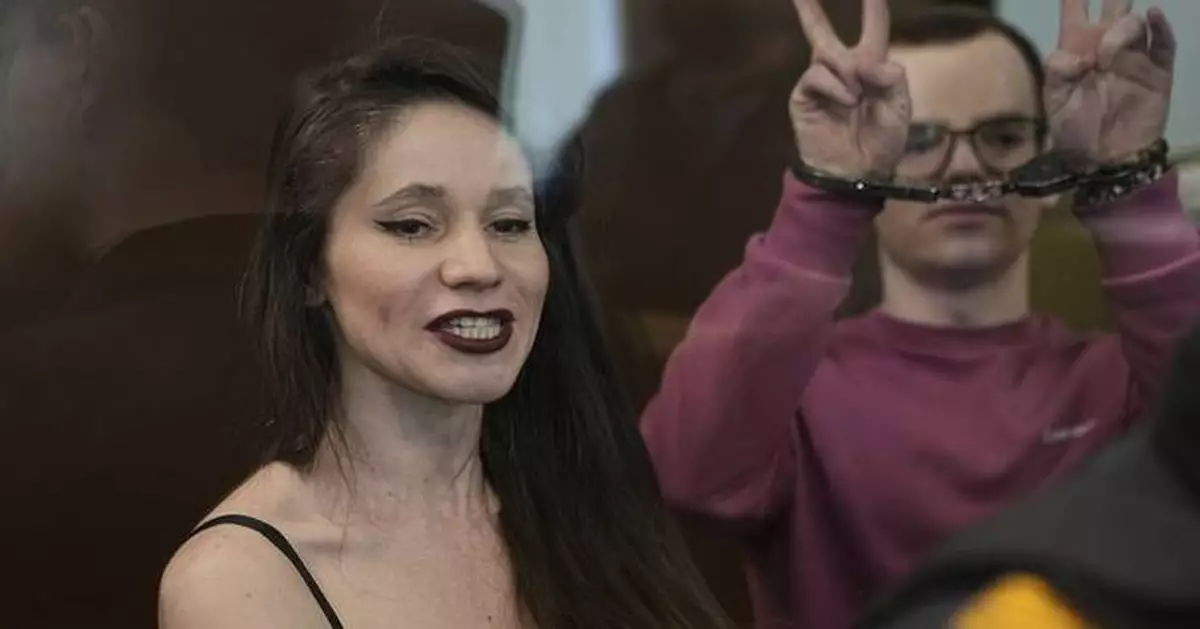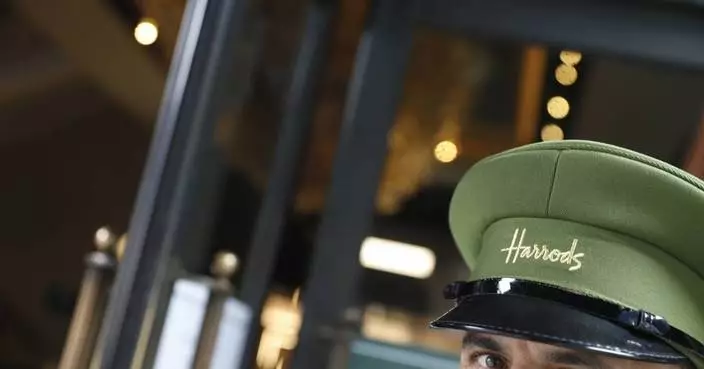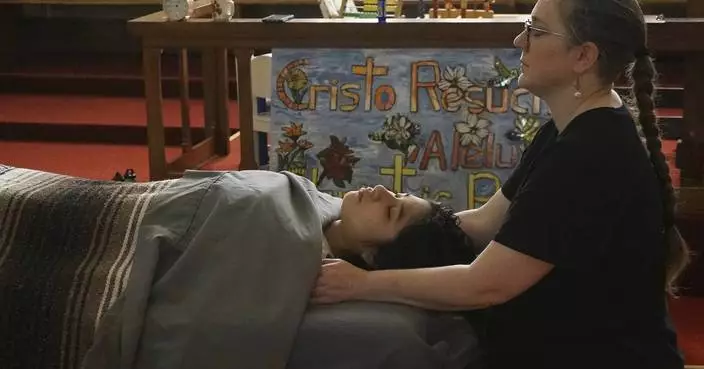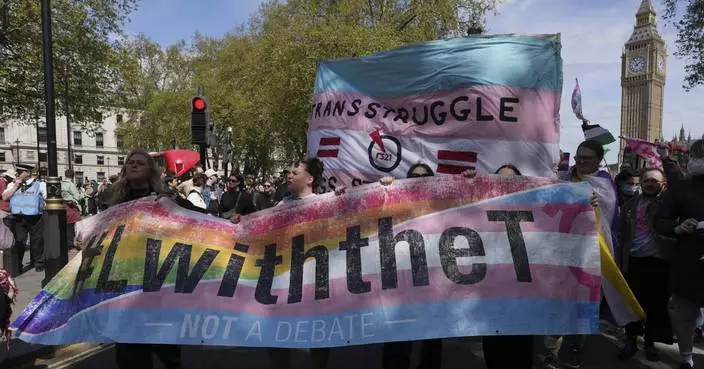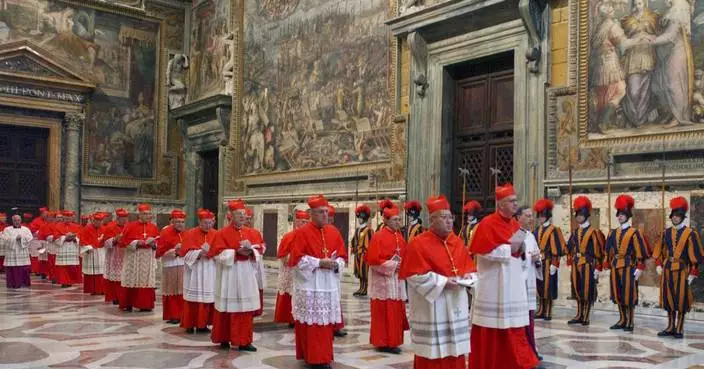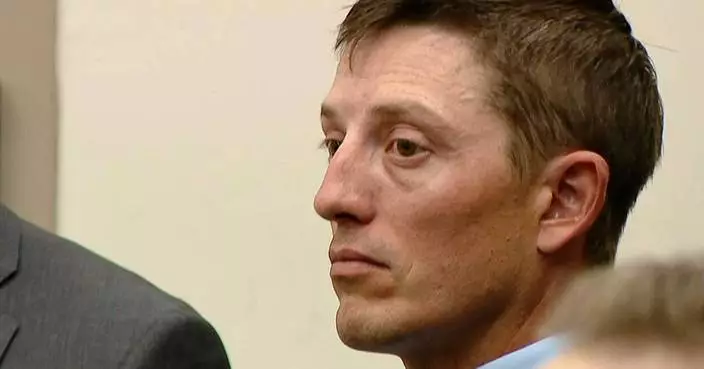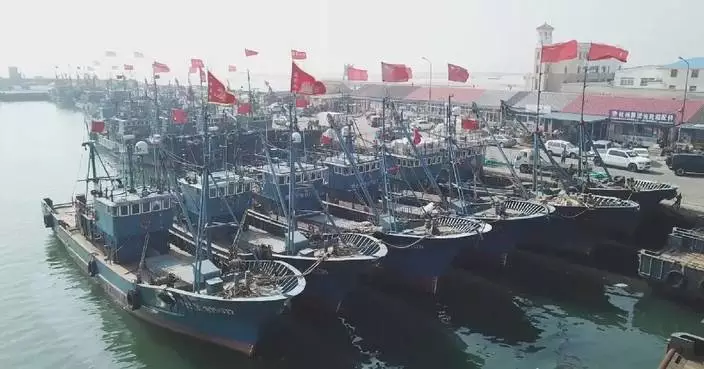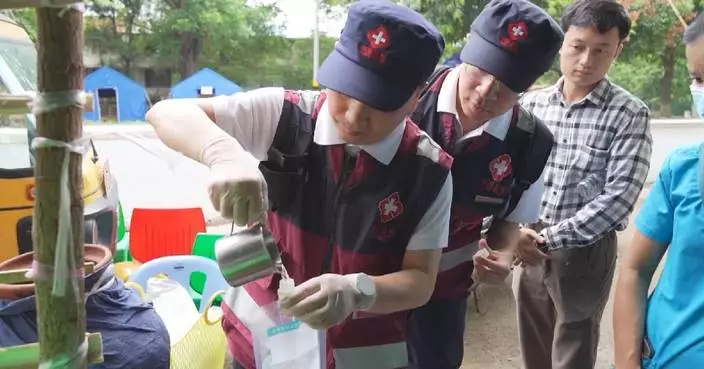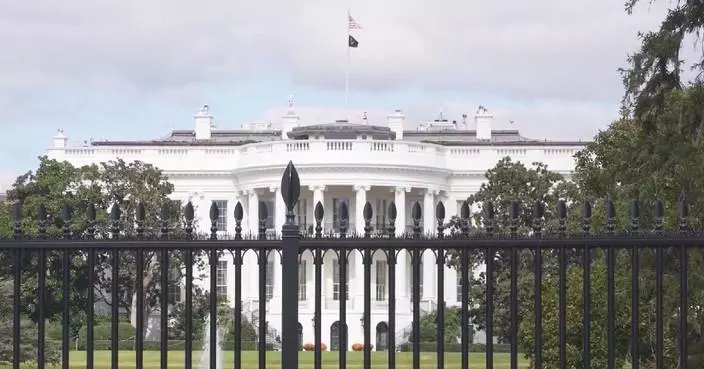MOSCOW (AP) — A Russian court on Tuesday convicted four journalists of extremism for working for an anti-corruption group founded by the late opposition leader Alexei Navalny and sentenced them to 5 1/2 years in prison each.
Antonina Favorskaya, Kostantin Gabov, Sergey Karelin and Artyom Kriger were found guilty of involvement with a group that had been labeled as extremist. All four had maintained their innocence, arguing they were being prosecuted for doing their jobs as journalists.
Click to Gallery
Russian journalists, from left, Konstantin Gabov, Sergey Karelin, Artyom Kriger and Antonina Favorskaya, accused of working for a group founded by the late Russian opposition politician Alexei Navalny, stand in a defendant's cage of the Nagatinsky District Court in Moscow, Russia, Tuesday, April 15, 2025. (AP Photo)
Russian journalists, from left, Konstantin Gabov, Sergey Karelin, Artyom Kriger and Antonina Favorskaya, accused of working for a group founded by the late Russian opposition politician Alexei Navalny, stand in a defendant's cage of the Nagatinsky District Court in Moscow, Russia, Tuesday, April 15, 2025. (AP Photo)
Russian journalist Konstantin Gabov, accused of working for a group founded by the late Russian opposition politician Alexei Navalny, stands in a defendant's cage of the Nagatinsky District Court in Moscow, Russia, on Tuesday, April 15, 2025. (AP Photo)
Russian journalists, from left, Sergey Karelin and Konstantin Gabov, accused of working for a group founded by the late Russian opposition politician Alexei Navalny, stand in a defendant's cage of the Nagatinsky District Court in Moscow, Russia, on Tuesday, April 15, 2025. (AP Photo)
Russian journalist Artyom Kriger, accused of working for a group founded by the late Russian opposition politician Alexei Navalny, stands in a defendant's cage of the Nagatinsky District Court in Moscow, Russia, on Tuesday, April 15, 2025. (AP Photo)
Russian journalist Sergey Karelin, accused of working for a group founded by the late Russian opposition politician Alexei Navalny, stands in a defendant's cage of the Nagatinsky District Court in Moscow, Russia, on Tuesday, April 15, 2025. (AP Photo)
Russian journalist Antonina Favorskaya, accused of working for a group founded by the late Russian opposition politician Alexei Navalny, stands in a defendant's cage of the Nagatinsky District Court in Moscow, Russia, on Tuesday, April 15, 2025. (AP Photo)
Russian journalists, Antonina Favorskaya, left, and Artyom Kriger, accused of working for a group founded by the late Russian opposition politician Alexei Navalny, stand in a defendant's cage of the Nagatinsky District Court in Moscow, Russia, on Tuesday, April 15, 2025. (AP Photo)
The closed-door trial was part of an unrelenting crackdown on dissent that has reached an unprecedented scale after Moscow sent troops into Ukraine in February 2022.
The authorities have targeted opposition figures, independent journalists, rights activists and ordinary Russians critical of the Kremlin with prosecution, jailing hundreds and prompting thousands to flee the country.
Favorskaya and Kriger worked with SotaVision, an independent Russian news outlet that covers protests and political trials. Gabov is a freelance producer who has worked for multiple organizations, including Reuters. Karelin, a freelance video journalist, has done work for Western media outlets, including The Associated Press.
The four journalists were accused of working with Navalny’s Foundation for Fighting Corruption, which was designated as extremist and outlawed in 2021 in a move widely seen as politically motivated.
Navalny was President Vladimir Putin’s fiercest and most prominent foe and relentlessly campaigned against official corruption in Russia. Navalny died in February 2024 in an Arctic penal colony while serving a 19-year sentence on a number of charges, including running an extremist group, which he had rejected as politically driven.
Favorskaya said at an earlier court appearance open to the public that she was being prosecuted for a story she did on abuse Navalny faced behind bars. Speaking to reporters from the defendants' cage before the verdict, she also said she was punished for helping organize Navalny's funeral.
Gabov, in a closing statement prepared for court that was published by the independent Novaya Gazeta newspaper, said the accusations against him were groundless and the prosecution failed to prove them.
“I understand perfectly well ... what kind of country I live in. Throughout history, Russia has never been different, there is nothing new in the current situation,” Gabov said in the statement. “Independent journalism is equated to extremism.”
In a statement Karelin prepared for his closing arguments that also was published by Novaya Gazeta, he said he had agreed to do street interviews for Popular Politics, a YouTube channel founded by Navalny’s associates, while trying to provide for his wife and a young child. He stressed that the channel wasn’t outlawed as extremist and had done nothing illegal.
“Remorse is considered to be a mitigating circumstance. It’s the criminals who need to have remorse for what they did. But I am in prison for my work, for the honest and impartial attitude to journalism, FOR THE LOVE for my family and country,” he wrote in a separate speech for court that also was published by the outlet, in which he emphasized his feelings in capital letters.
Kriger, in a closing statement published by SotaVision, said he was imprisoned and added to the Russian financial intelligence’s registry of extremists and terrorists “only because I have conscientiously carried out my professional duties as an honest, incorruptible and independent journalist for 4 1/2 years.”
“Don't despair guys, sooner or later it will end and those who delivered the sentence will go behind bars,” Kriger said after the verdict.
Supporters who gathered in the court building chanted and applauded as the four journalists were led out of the courtroom after the verdict.
The journalists' lawyers said they would appeal the verdict, which Kriger's attorney, Yelena Sheremetyeva, described as "illegal, unfair.”
“The profession of a journalist in itself is not extremism,” said Irina Biryukova. “And based on the case materials that are available, I will say that in our opinion, there is no evidence that the guys committed any crimes, or even minor offenses.”
She said the four “are holding up” and “were happy that so many people came.”
The Russian human rights group Memorial designated all four as political prisoners, among more than 900 others held in the country. That number includes Mikhail Kriger, Artyom Kriger’s uncle, a Moscow-based activist who was arrested in 2022 and is serving a seven-year prison sentence.
Mikhail Kriger was convicted of justifying terrorism and inciting hatred over Facebook comments in which he expressed a desire “to hang” Putin.
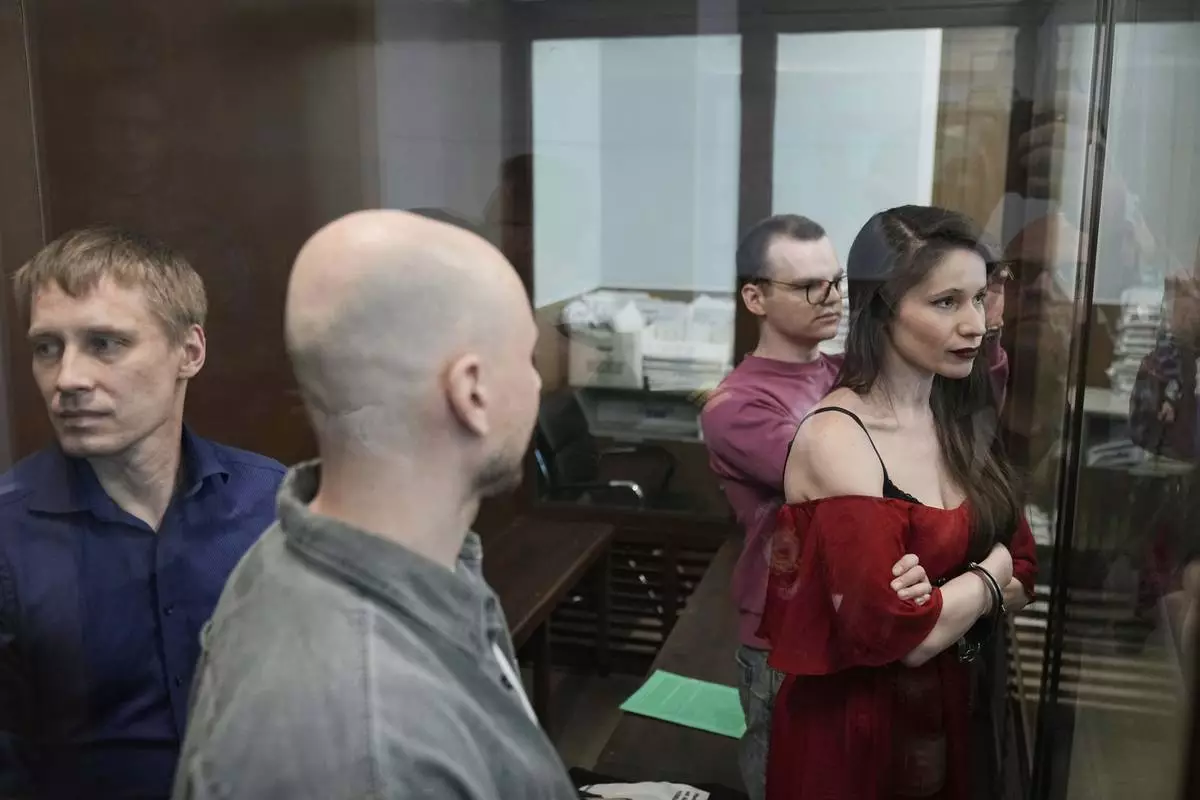
Russian journalists, from left, Konstantin Gabov, Sergey Karelin, Artyom Kriger and Antonina Favorskaya, accused of working for a group founded by the late Russian opposition politician Alexei Navalny, stand in a defendant's cage of the Nagatinsky District Court in Moscow, Russia, Tuesday, April 15, 2025. (AP Photo)
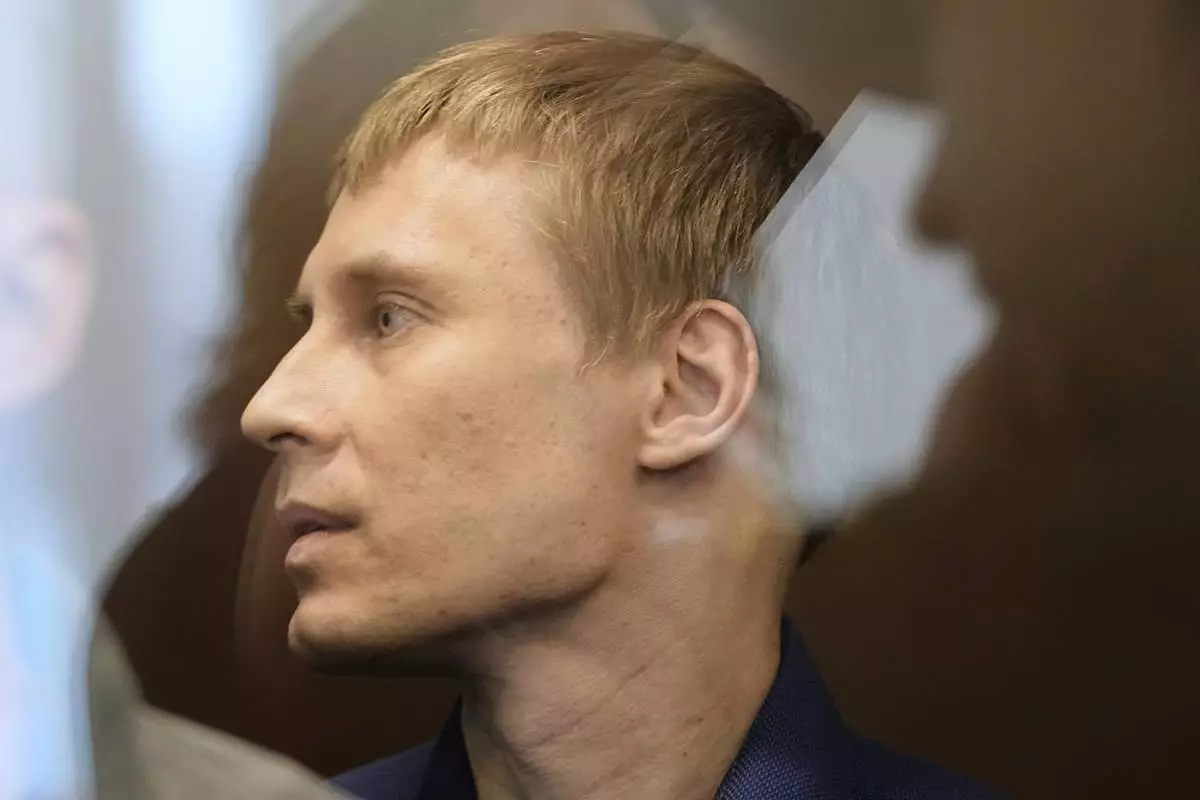
Russian journalist Konstantin Gabov, accused of working for a group founded by the late Russian opposition politician Alexei Navalny, stands in a defendant's cage of the Nagatinsky District Court in Moscow, Russia, on Tuesday, April 15, 2025. (AP Photo)
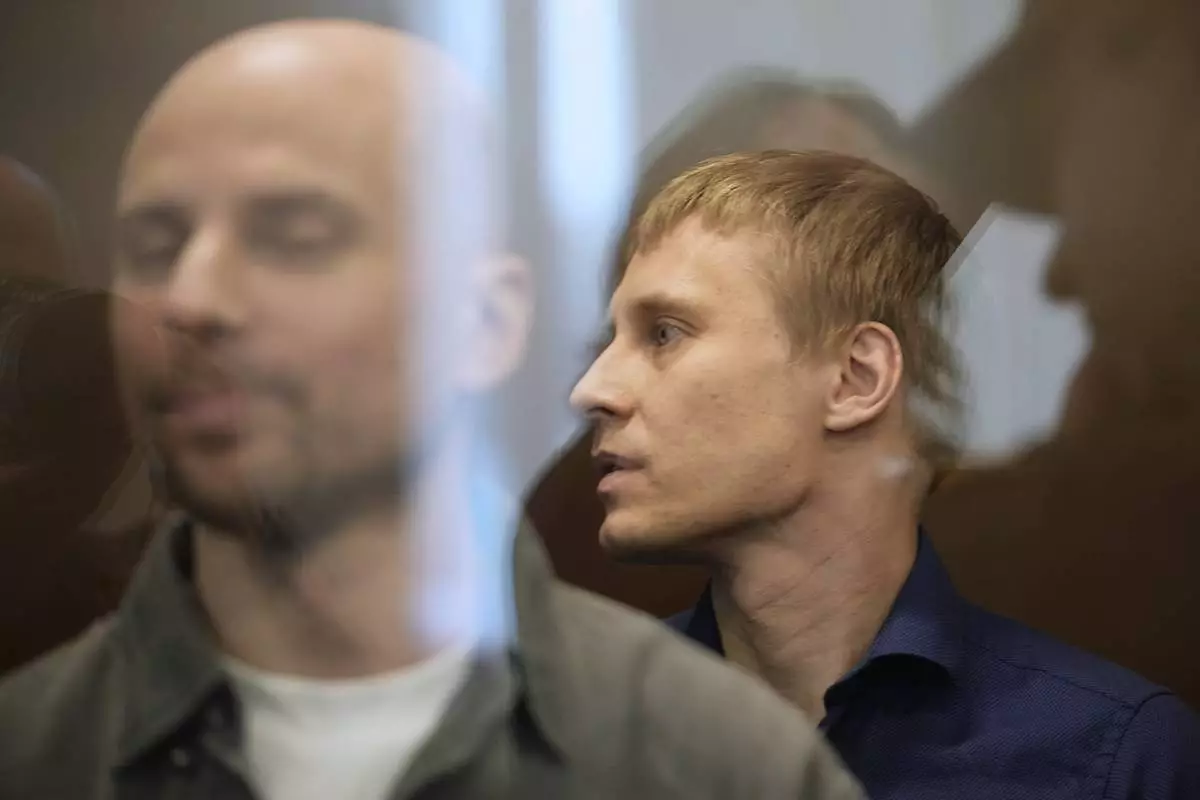
Russian journalists, from left, Sergey Karelin and Konstantin Gabov, accused of working for a group founded by the late Russian opposition politician Alexei Navalny, stand in a defendant's cage of the Nagatinsky District Court in Moscow, Russia, on Tuesday, April 15, 2025. (AP Photo)
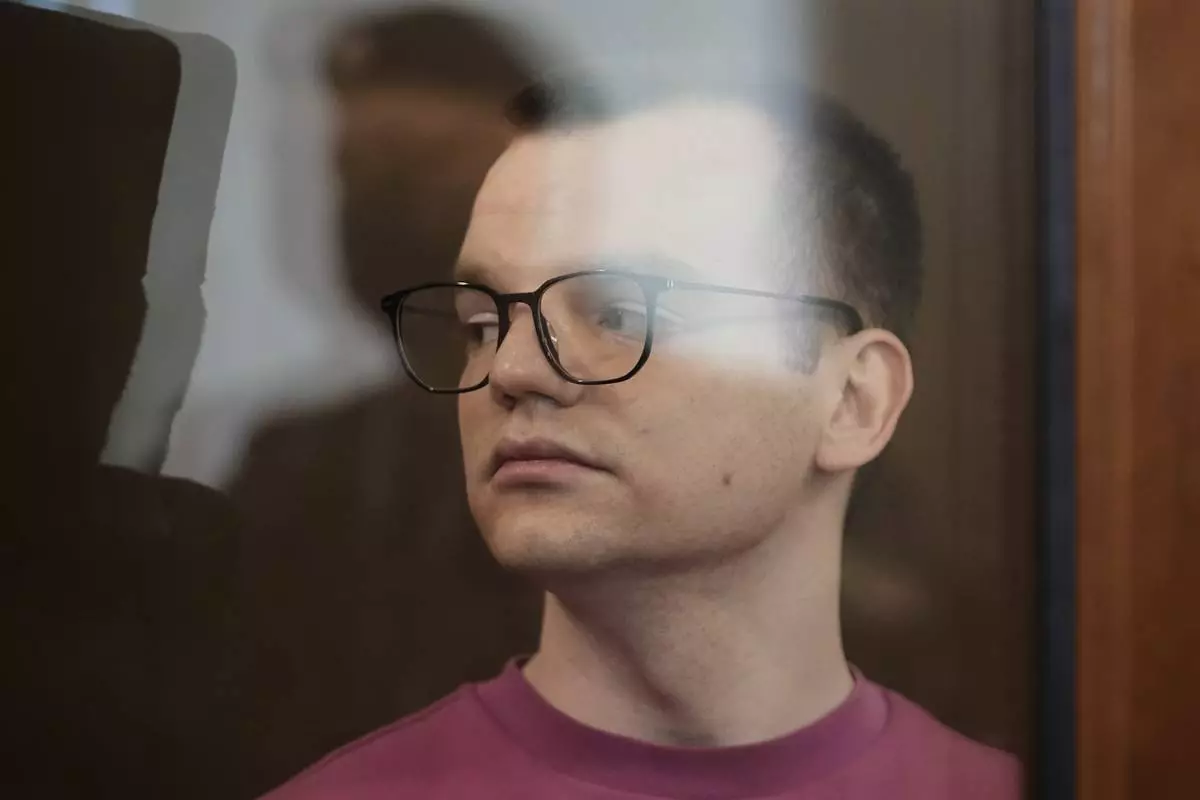
Russian journalist Artyom Kriger, accused of working for a group founded by the late Russian opposition politician Alexei Navalny, stands in a defendant's cage of the Nagatinsky District Court in Moscow, Russia, on Tuesday, April 15, 2025. (AP Photo)
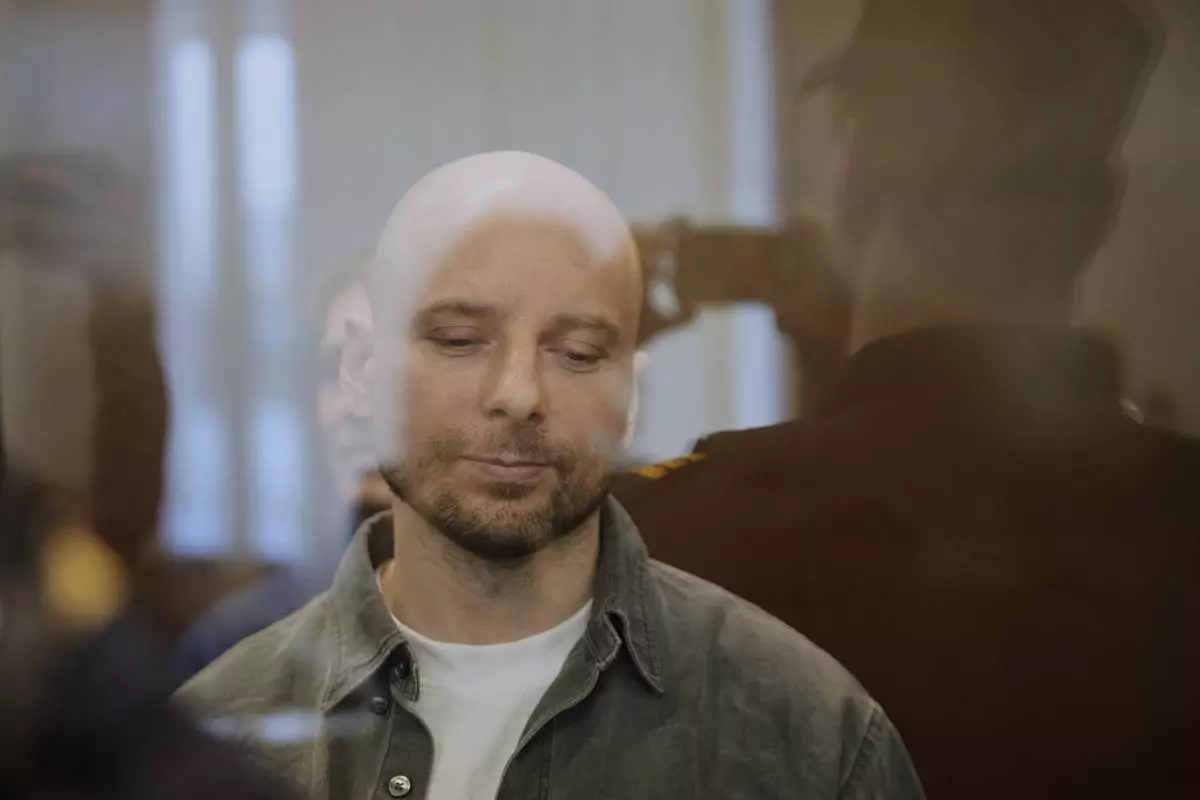
Russian journalist Sergey Karelin, accused of working for a group founded by the late Russian opposition politician Alexei Navalny, stands in a defendant's cage of the Nagatinsky District Court in Moscow, Russia, on Tuesday, April 15, 2025. (AP Photo)
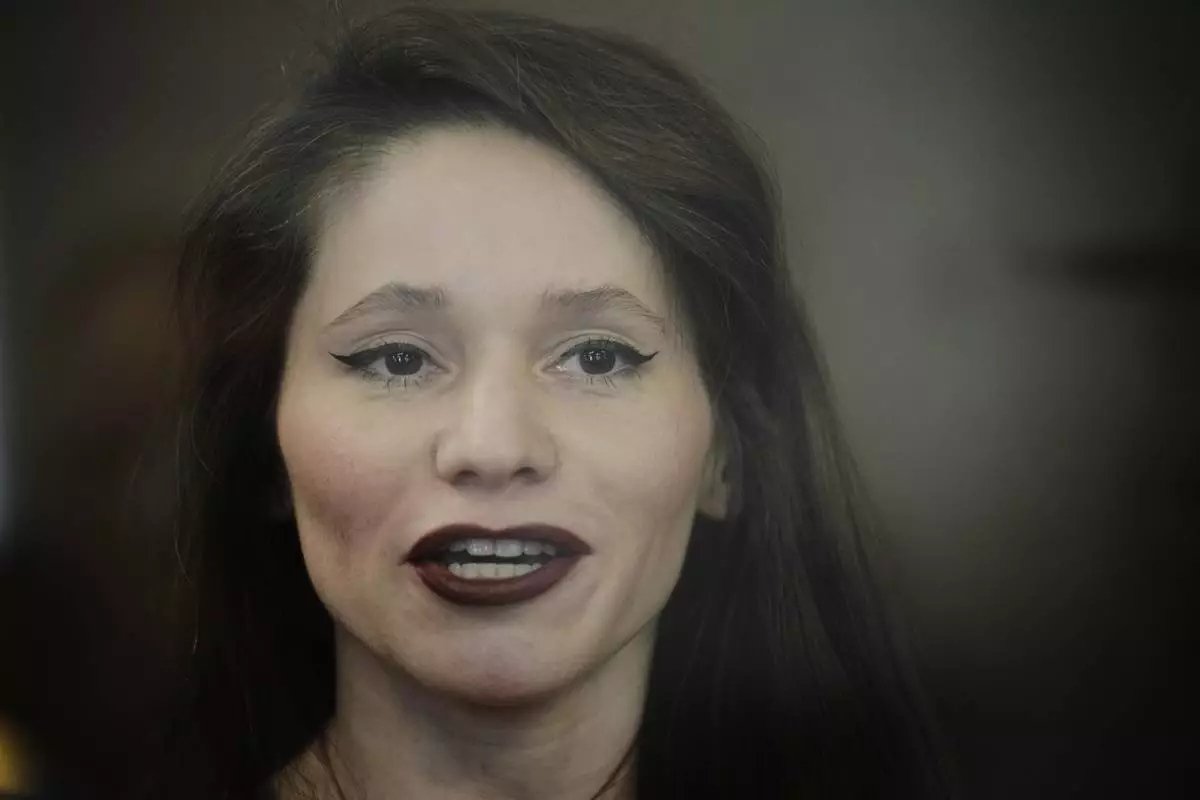
Russian journalist Antonina Favorskaya, accused of working for a group founded by the late Russian opposition politician Alexei Navalny, stands in a defendant's cage of the Nagatinsky District Court in Moscow, Russia, on Tuesday, April 15, 2025. (AP Photo)
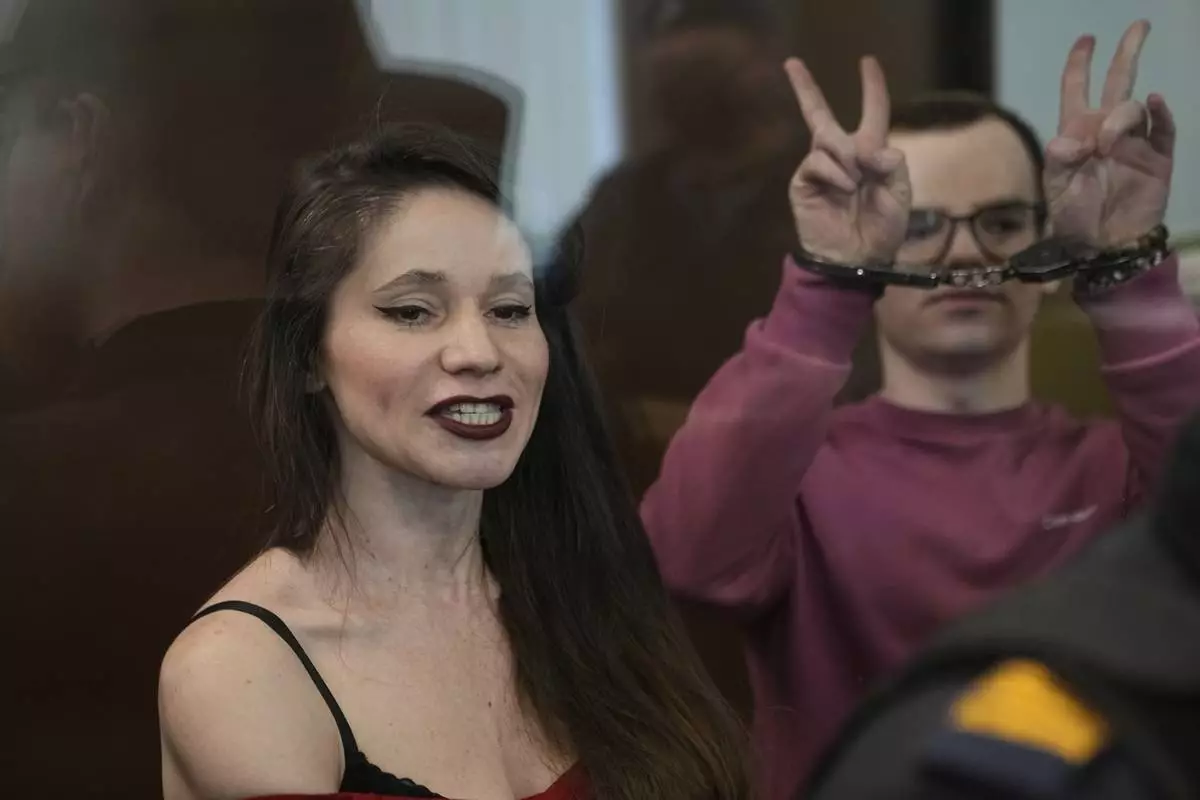
Russian journalists, Antonina Favorskaya, left, and Artyom Kriger, accused of working for a group founded by the late Russian opposition politician Alexei Navalny, stand in a defendant's cage of the Nagatinsky District Court in Moscow, Russia, on Tuesday, April 15, 2025. (AP Photo)
TEL AVIV, Israel (AP) — Drones attacked a vessel carrying aid to Gaza while it was in international waters off Malta on Friday, the group organizing the shipment said. A fire broke out but was brought under control, according to authorities.
A nearby tugboat responded to a distress call from the Conscience, which was carrying 12 crew members and four civilians, Malta’s government said, adding that those aboard refused to leave their ship. The group was safe and no injuries were reported, it said.
The Freedom Flotilla Coalition accused Israel of attacking its ship. It did not provide evidence of that or that the fire was caused by drones, but in a video it shared an explosion can be heard. Another video showed a fire blazing.
The Israeli army didn’t respond to a request for comment.
Israel has cut off Gaza from all imports, including food and medicine, since the beginning of March, leading to what is believed to be the worst humanitarian crisis in nearly 19 months of war with Hamas.
Israel says it is an attempt to pressure the militant group to release hostages it took during the Oct. 7, 2023, attack that triggered the conflict. Hamas-led militants attacked southern Israel that day, killing some 1,200 people, mostly civilians, and abducting 251. Hamas is still holding 59 hostages, 24 of whom are believed to be alive.
In response, Israel launched an offensive that has killed over 52,000 Palestinians, mostly women and children, according to Gaza's Health Ministry, which does not say how many of the dead were fighters or civilians. Israel’s bombardment and ground operations have destroyed vast areas of the territory and left most of its population homeless.
When an aid flotilla attempted to break a blockade of Gaza in 2010, Israeli forces stormed a Turkish ship, Mavi Marmara, killing nine people on board.
On Friday, the Conscience was hit about 16 miles (26 kilometers) from Malta, according to the Freedom Flotilla.
Charlie Andreasson, who has been involved with the group for more than a decade, told The Associated Press that he had spoken to people on board who said there were two explosions and a fire broke out.
Photos provided by the Cypriot authorities showed the ship with damage to its side. People on board the ship were not immediately reachable for comment.
Earlier the group said the strike appeared to have targeted the ship’s generator, causing a “substantial breach in the hull” and leaving it without power. It said that put the vessel at risk of sinking.
According to the monitoring website Marine Traffic, the Conscience left the Tunisian port of Bizerte on Tuesday and arrived in the area where it reported being attacked on Thursday morning. The organizers said the ship was hit Friday, just after midnight.
Volunteers, including prominent figures, who had traveled to Malta, were meant to board the ship to go to Gaza, the group said. Andreasson said climate activist Greta Thunberg was supposed to have participated. The organization said Thunberg did not board and was safe.
The incident comes as aid groups have warned that the humanitarian response in Gaza is on the verge of collapse.
The International Committee of the Red Cross said Friday it will not have access to food, medicine, and life-saving supplies needed for many of its Gaza programs if aid deliveries don’t resume immediately.
Programs at risk include “common kitchens” that often give residents the only meal they receive each day and could be forced to halt operations in a few weeks, the ICRC said.
“Aid must be allowed to enter Gaza. Hostages must be released. Civilians must be protected,” it said. “Without immediate action, Gaza will descend further into chaos that humanitarian efforts will not be able to mitigate.”
Brito contributed from Barcelona, Spain. Associated Press writers Tia Goldenberg in Tel Aviv, Israel; Giada Zampano in Rome; Kevin Schembri Orland in St. Julian’s, Malta; Colleen Barry in Soave, Italy; Elena Becatoros and Julia Frankel in Jerusalem; Jamey Keaten in Geneva; Menelaos Hadjicostis in Nicosia, Cyprus; and Jon Gambrell in Dubai contributed.
Follow AP’s war coverage at https://apnews.com/hub/israel-hamas-war
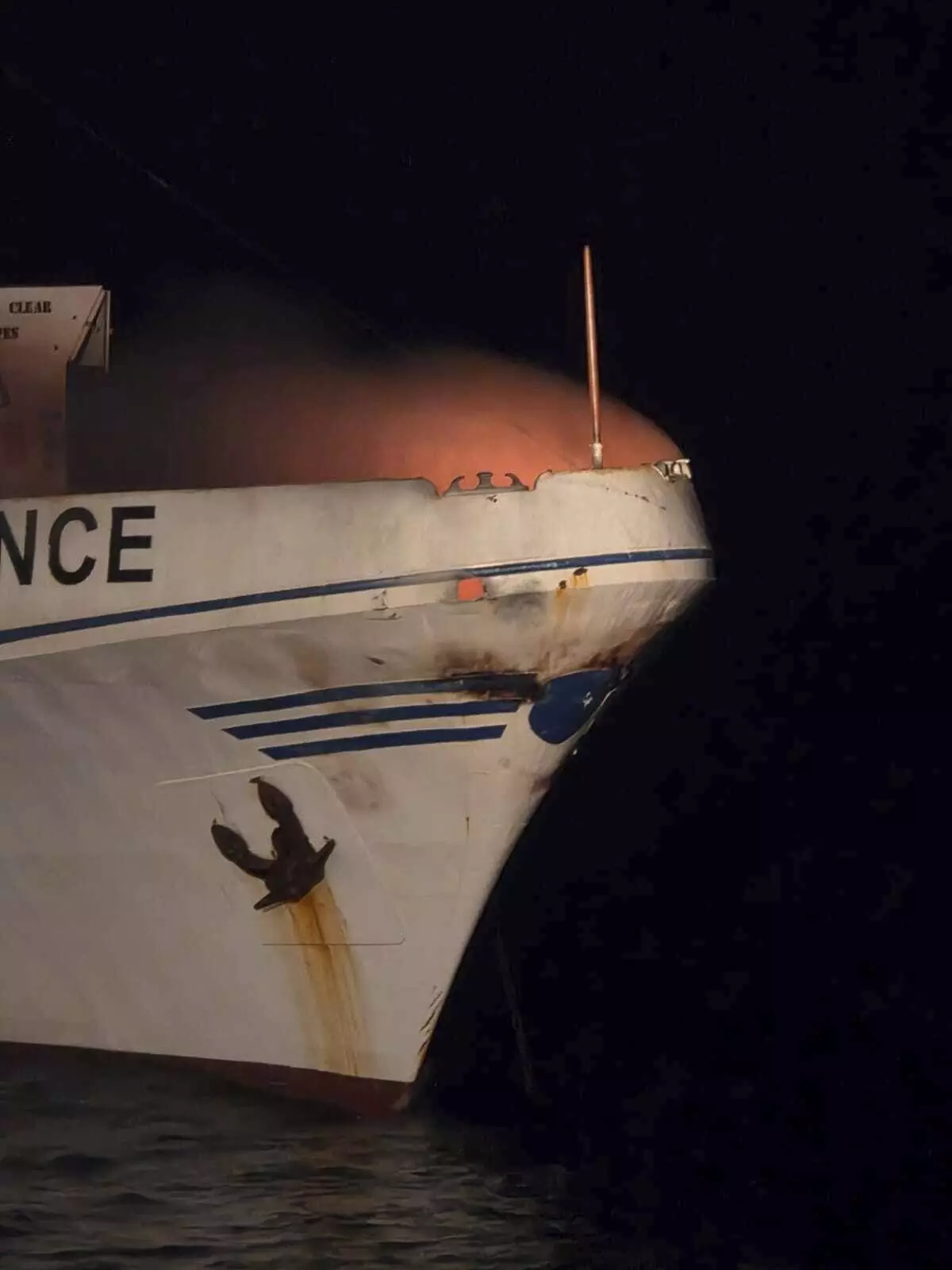
In this photo provided by the Government of Cyprus, a fire burns on the ship The Conscience, after a drone struck the vessel carrying aid to Gaza off the coast of Malta, Friday, May 2, 2025. (Government of Cyprus via AP)
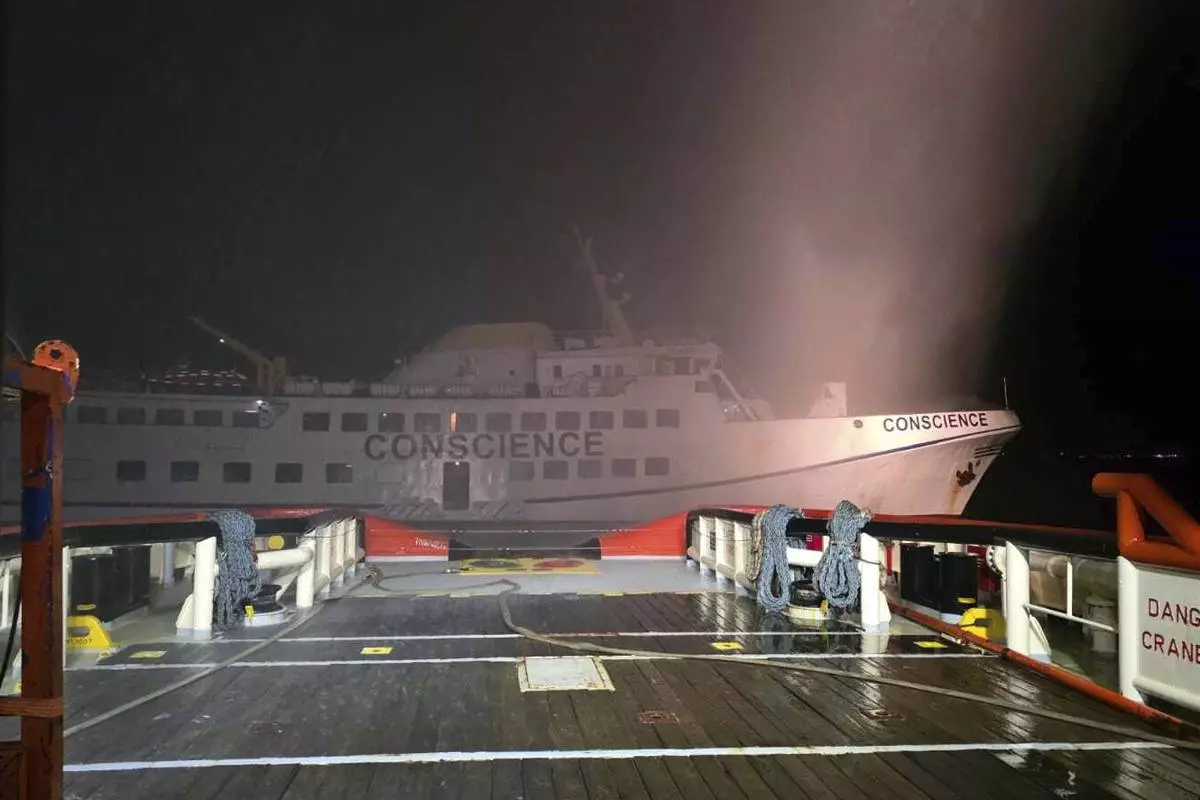
This photo provided by the Goverment of Cyprus and taken from the EDT ship AEOLUS shows The Conscience, after a drone struck the vessel carrying aid to Gaza off the coast of Malta, Friday, May 2, 2025. (Government of Cyprus via AP)
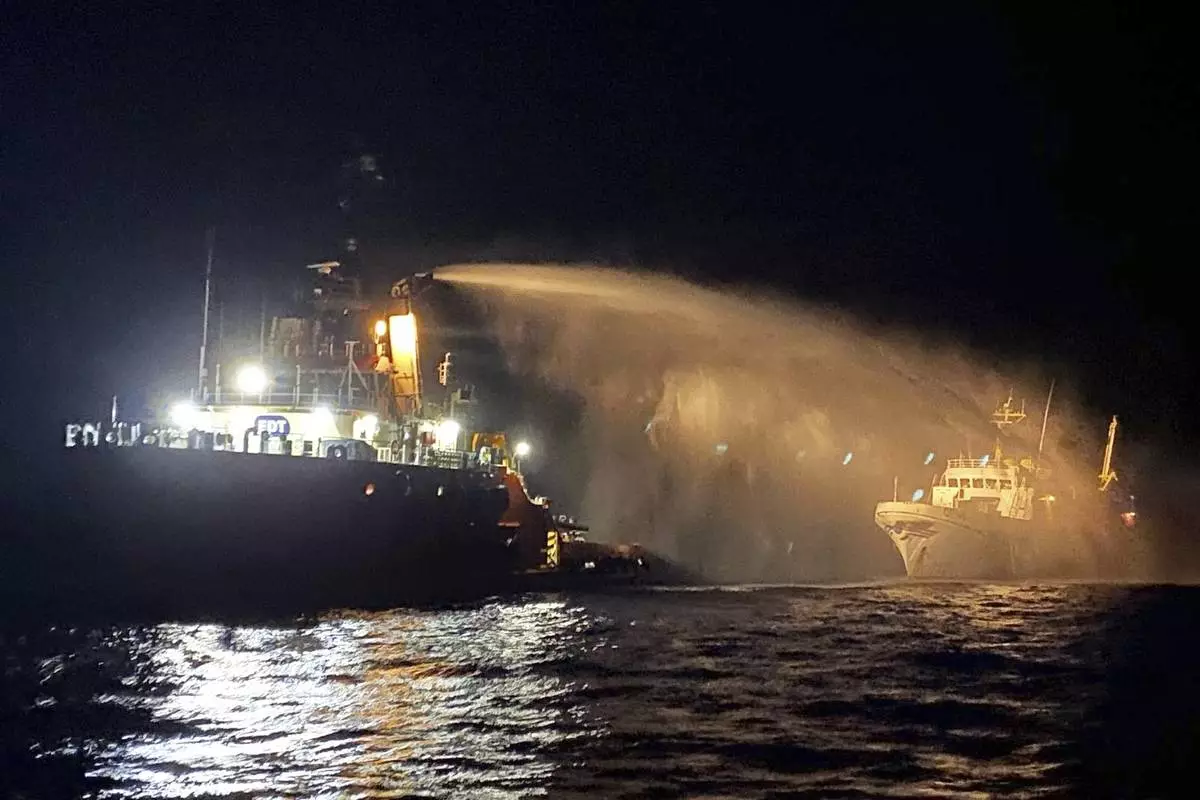
A firefighting-equipped tug boat, left, contacted by the Malta Vessel Traffic Services (VTS) helps controlling a fire occurred on the bow of the Conscience vessel in international waters of the Mediterranean Sea, Friday, May 2, 2025. (Malta Vessel Traffic Services via AP)









